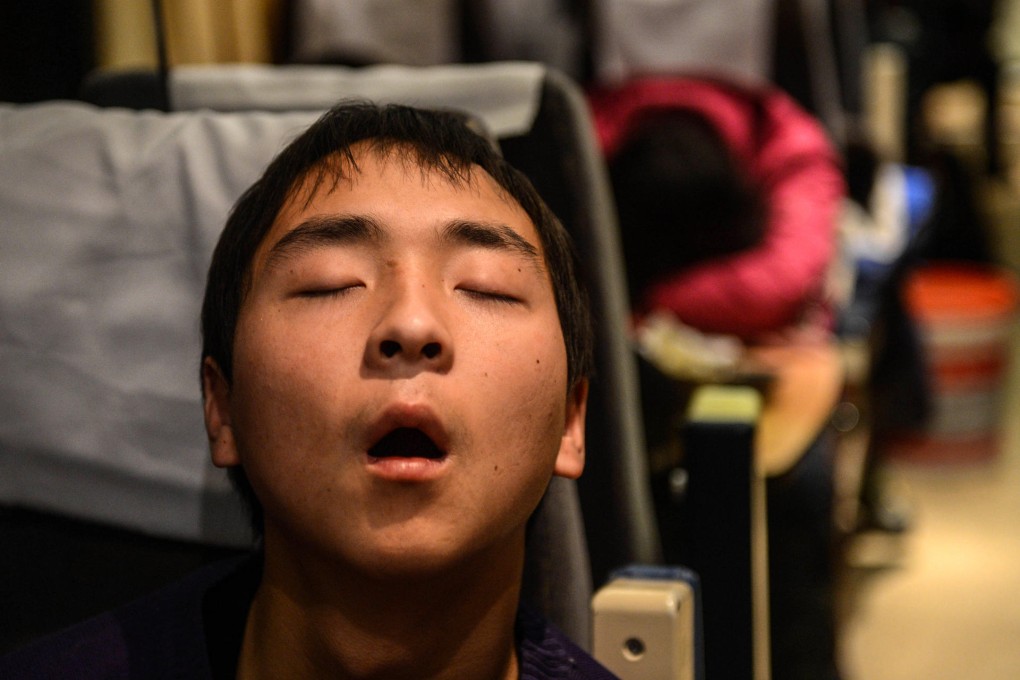Stress, obesity and gadget addiction rob more Chinese of a good night's sleep
Getting a full night's rest used to be a sign of laziness. Now it's a distant dream for many

A Jin dynasty (1115-1234) tale tells of two ambitious, young patriots named Zu Ti and Liu Kun who rose at dawn each day to practice swordplay. The skilled warriors lead troops to victory and became revered officials.

But, according to several sleep specialists, the Chinese cultural emphasis on diligence and hard work, coupled with the popular belief that a full night's sleep is a sign of laziness, results in sleep problems often being minimised or simply ignored.
"Awareness of sleep disorders is still very low," said Dr Han Fang, president of the China Sleep Research Society and director of the Sleep Centre at Peking University People's Hospital. "It's a key [health] issue. Many people may see snoring as a sign of sleeping well, not a sign of disease."
Statistics show that sleep apnoea, which disrupts breathing and is often manifested in snoring, and other sleep disorders are widespread in China. As the general public becomes wealthier, overweight and more connected to technology, sleep problems are becoming more prevalent.
About 40 per cent of Chinese people suffer from a sleep disorder, Han said. These run the spectrum from mild to acute insomnia, to serious diseases such as sleep apnoea and narcolepsy, a neurological disorder than can severely disrupt sleeping cycles. All of these conditions have serious health effects, and incur broader costs to society from lost productivity and accidents.